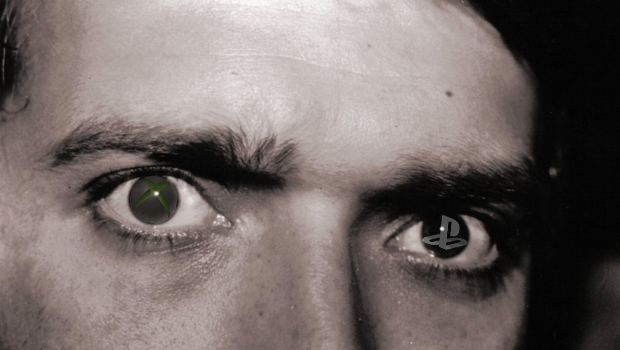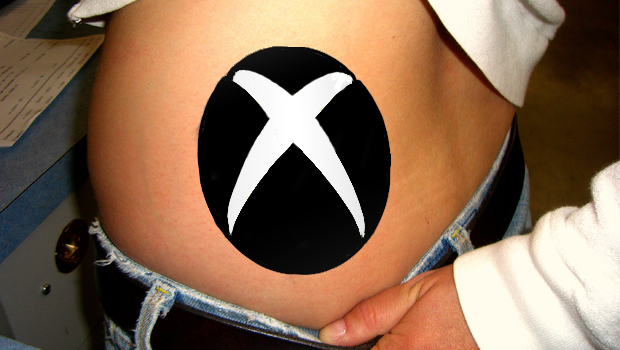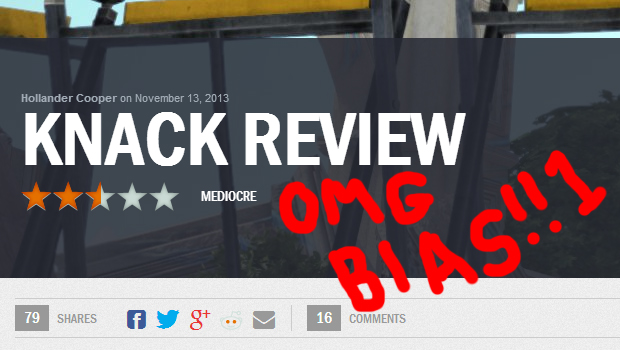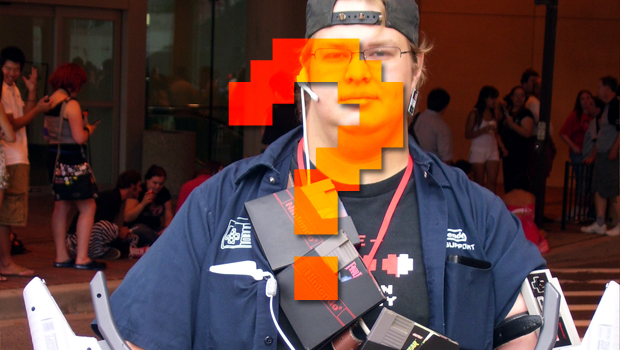The psychology of fanboys, explained by a professional
Analyse this

Fanboys. Theyre one of gamings most prevalent phenomena, and one of its most seemingly inexplicable. Vocal, dogmatic, and often apparently illogical, the veracity of their loyalty to brands and franchises is matched only by the blinkered, unswerving nature of their viewpoints. Its unsurprising that theyre often written off as lunatic cranks, diverged from reality. But are they really crazy, or is their behaviour more comprehensible than many think?
With a new wave of fanboy word-battles igniting over new-gen, and set to continue for years to come, I decided to try to get to the bottom of this. To that end, Ive enlisted professional help. I contacted Clinical Psychologist Dr. Abigail Clark and presented her with the core tenets of modern fanboy behaviour in order to get her professional insight. Click on. Theres some mighty interesting analysis to be had, starting with a look at
Rabid brand loyalty

"Human beings are social creatures and needing to belong is hard-wired into our brains along with our survival instincts. In fact it is our social nature that has allowed us to survive and prosper since we were cavemen. Whilst the forms that social groups or communities have taken have changed over the years, they still serve the same function. It is from these social groups that we develop a sense of identity and gaining this identity from a brand or corporate entity is not so different from gaining it from your geographical locality or your local football team.
"Many people begin playing games during childhood and adolescence, and one of the central psychological processes taking place during this period is the development of self-identity. Especially with modern media, computer brands can now provide that identity along with a ready-made community where you feel accepted and understood, which may be particularly relevant for people who are not gaining this from more traditional routes such as family or school. Fanboy behaviour then makes perfect sense when you consider that the brand is integral to their identity and the community that comes along with it provides them with their much needed feeling of belonging."
The sense of entitlement

The dark flip-side to a fanboys loyalty is the sense of entitlement that many exhibit. Give them what they want, and theyll support your company to the end of time. Dont give them what they want, and theyll still support you, but by God will they behave like you personally owe them better in exchange for their years of loyalty. Conversely, theyll often reinforce their statements regarding the sorry current state of a companys output by endlessly buying re-release of games they already own on multiple formats. It seems illogical, but Dr. Clark says its anything but, when you focus fanboyish through the lens of social belonging:
"Like a family we expect something from this community, which may explain why fanboys expect 'reward' for their allegiance. And also like a family we give something back, and endlessly buying re-released products is a way of giving and demonstrating your loyalty."
The disregarding of any contrary opinion

"It is not that fanboys think that their opinions are fact, it is that all of us think our opinions are fact because of the way schemas operate. Think of any time you have ended up in a debate with someone who has different political views to you or supports a different sports team. It often feels like youre hitting a brick wall and thats because you are, metaphorically speaking.
Sign up to the GamesRadar+ Newsletter
Weekly digests, tales from the communities you love, and more
"Based upon our sense of self and identity, as well as our beliefs about others and the world, we all have mental filters which are very good at dismissing information that doesnt fit with these beliefs and overemphasizing what does fit. It makes sense then that anything a reviewer says will be filtered out and that any flaws in a game will be ignored, because our minds simply will not let that information in. These mental filters are called schemas and schemas help us quickly sift through the vast amount of information we take in everyday and make quick decisions about how to act based upon this information. These schemas are great because they are quick and often accurate but get us all in trouble because they stop us from making slow informed decisions based upon the actual evidence."
Stubborn belief in a brand, to the point of denial

"Another important psychological process is cognitive dissonance. This is the uncomfortable feeling where your beliefs do not match up to reality and so our minds work hard to rectify this so as to reduce this discomfort. Like schemas, cognitive dissonance allows us to reinterpret the evidence so that it is in harmony with our beliefs. This is more powerful the more we have invested into something, because it will be that much more damaging for our sense of self to admit that we were wrong. This helps explain why fanboys have stuck to brands through the wilderness and the flops. The longer you have stuck with them, the more important it is for you to keep sticking with them and woe betide anyone who says something to the contrary."
Knee-jerk judgements based on little to no evidence

A fanboy will never follow the development of a newly-announced product with excited interest. Theyll know from day one whether its going to be the greatest thing ever made by man, or just another stinking disaster from a rival company. So why the self-assuredness? Well
"A fanboy doesnt need to wait to read what a reviewer says to make up their mind because they already know the game will be good because this is consistent with their beliefs and identity. This in turn prevents their beliefs from changing and reinforces these beliefs. This isnt any different to what the rest of us are like and we will all have different areas where these processes come into play. It is just that for fanboys it is their allegiance to their chosen brand that has formed their identity whereas for others it may be their family, a sports team, a job etc. Therefore it is their brand that their minds fiercely protect because not to could be hugely damaging psychologically."
Personal attacks on the deliverers of bad news

Coming off the back of that last point, fanboys always seem to have an entire arsenal of ad hominem defences armed and ready to be unleashed upon any reviewer who tells them something they dont want to know. It seems that if they cant argue their case on the battlefield of objective appraisal, theyll directly attack the messenger on a personal level. It seems harsh and unfair to see a professional game critic savaged in the comments on a review, but apparently, fanboys arent doing anything that the rest of us dont. They just do it on a more public forum, with their approach possibly boosted by the ever-convenient veil of internet anonymity. Says Dr. Clark:
"Think about how you react when someone criticizes a member of your family or a close friend. You become instantly defensive and often attack the other, which makes sense when you think social groups are integral to our survival as a species."
Things making more sense?

So, does fanboy behaviour make more sense now? Do you feel any more sympathetic, now that you understand what's really going on? If you are a fanboy, has this article provided you with any useful insights into your daily crusade? Let us know in the comments.
And while you're here, check out some of our related content. Given that we're currently transitioning to next-gen, why not fan the flame war with The Xbox One's announcement to release (in meme form) and the equivalent feature for the PS4.



